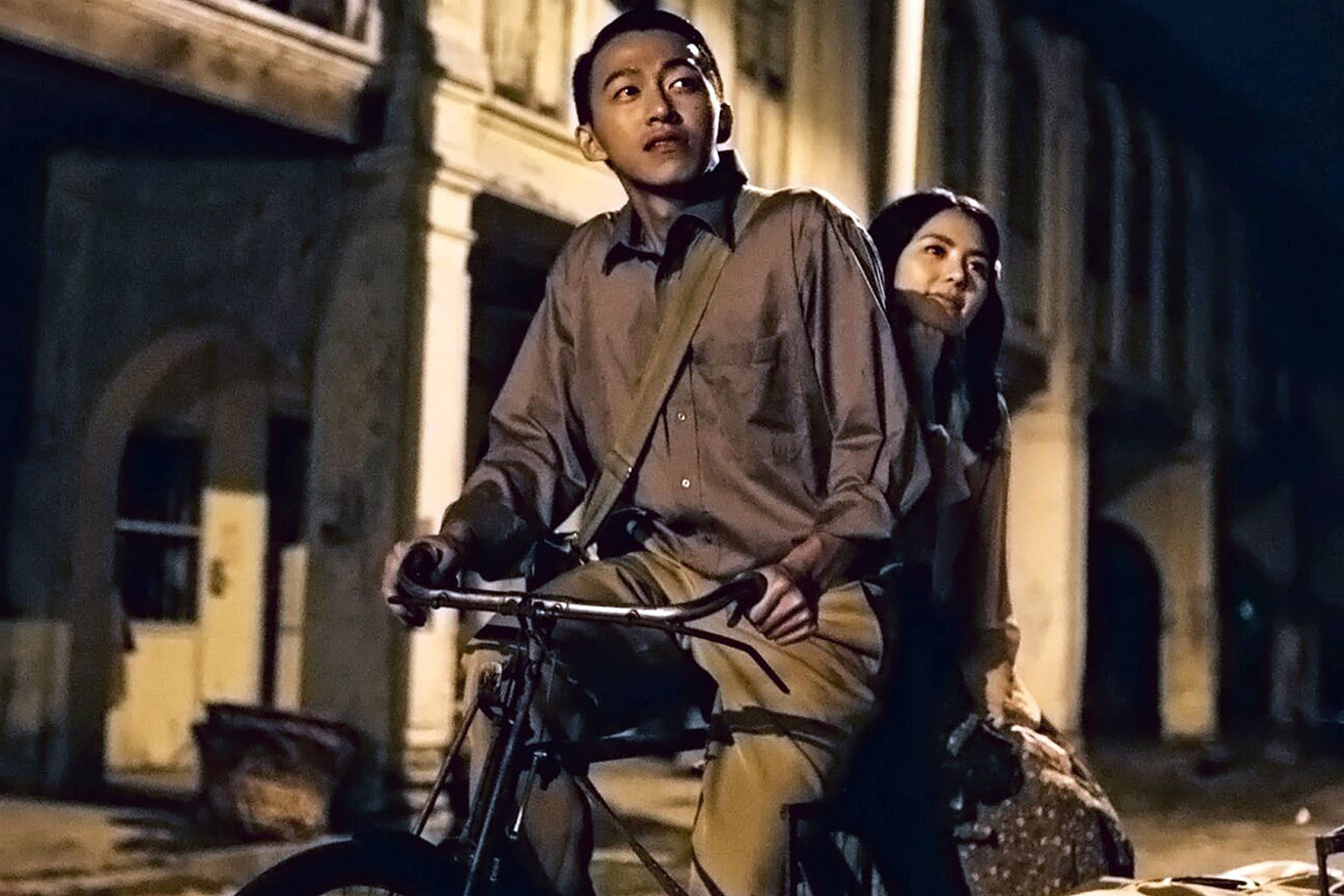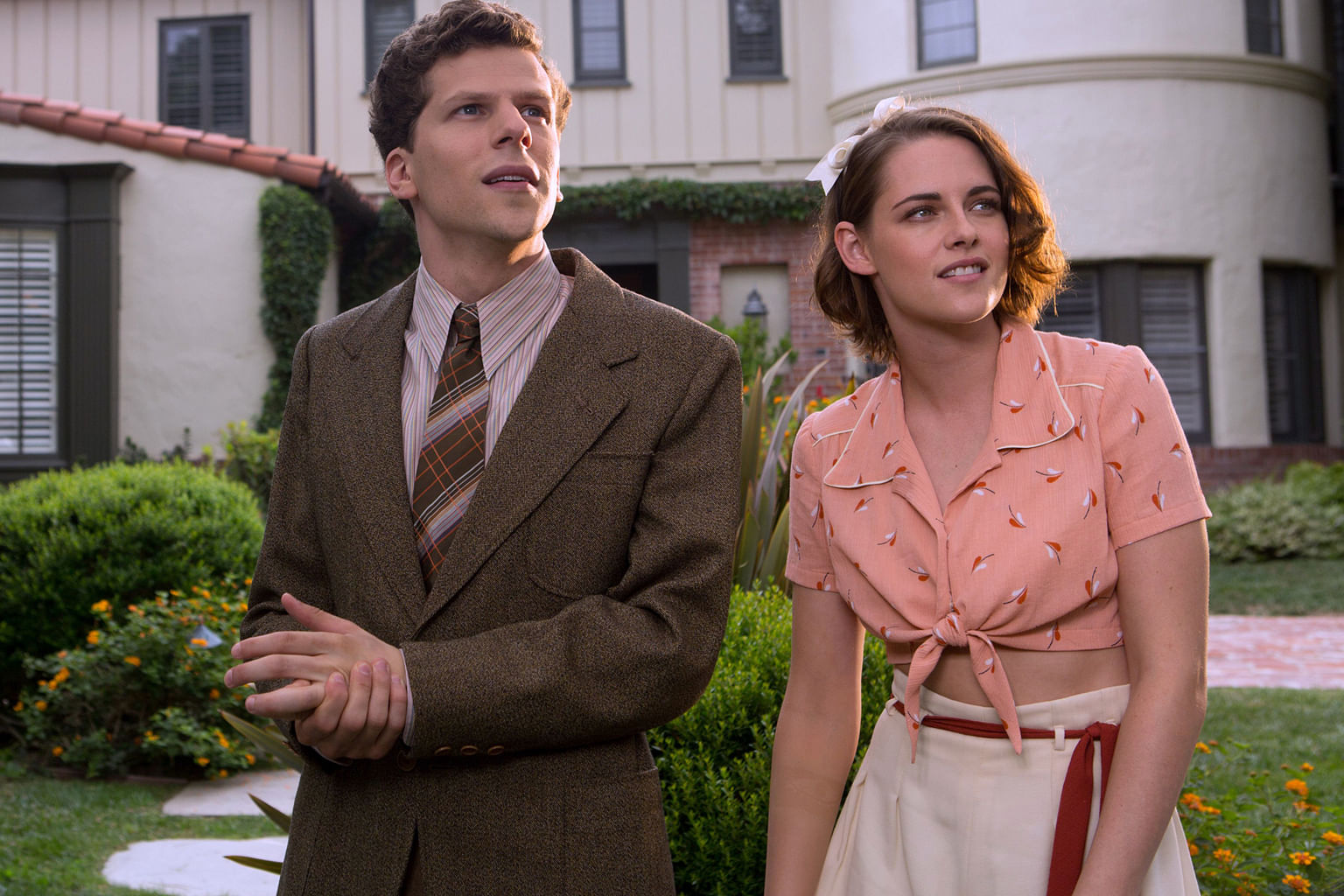Two movies this week are mythic - one is a fantasy and the other woven out of the facts of a real-life air accident.
Kubo And The Two Strings (PG, 103 minutes, opens tomorrow, 4/5 stars) is a gorgeously illustrated and touchingly told story of a kid with a destiny: to find the power that will grant him victory in battle against evil spirits.
In ancient Japan, Sariatu (voiced by Charlize Theron) lives in a cave with son Kubo (Art Parkinson), a born storyteller who transfixes villagers with stories of heroes crossing swords with demons.
Kubo's tall tales foreshadow his adventures. It is one of several clever tricks employed in this work from Laika, the studio which gave birth to other all-ages pictures driven by child leading characters: The Boxtrolls (2014), ParaNorman (2012) and Coraline (2009).
The stop-motion puppetry setpieces here are so gorgeous that they nearly overwhelm the story, which, thankfully, is sturdy enough to balance it out. Director Travis Knight - who also runs Laika - makes this the cinematic equivalent of slow food. It is exquisitely handcrafted, not just in its animation, but also in character development and plot.
Kubo's sidekick, the warrior, Beetle, is voiced by Matthew McConaughey, doing his best to suppress his Texan lilt to fit in with the cast. And he succeeds, mostly.

The other epic tale is Sully (PG13, 96 minutes, opens tomorrow, 4/5 stars). Here, Clint Eastwood directs a picture about a topic he loves dearly: Age and guts beats youth and technology every time.
In 2009, Captain Chesley Sullenberger ("Sully" to his friends) landed an Airbus A320 with 155 people on board on New York's Hudson River, with no loss of life.
The story is told in flashback. Sully (Tom Hanks) is under investigation by safety officials who think his water-landing was reckless, that he could have limped to nearby airports, even with both engines knocked out by geese. Why? Computers told them so (you can almost hear Eastwood snort at this point). His wife Lorraine (Laura Linney) and co-pilot Jeff Skiles (Aaron Eckhart) defend him.
The timeline weaves in and out, flipping from his current crisis to the one in the skies. The in-flight scenes are vivid and deeply harrowing, in particular for those watching the Imax version. The event, which unfolded over 12 minutes in real life, is shown several times from different viewpoints and each time is as terrifying as the last.
Where the film takes a forward leap in quality is when it shows how the myth of the ice-cool pilot hero was not only invented, but it was also inevitable. People were hungry for, as one person states, "a story about planes and New York that isn't a tragedy".
Eastwood lets the story tell itself - the more desperate the moment, the quieter the scenes become. The music score falls away.
His instincts are right. The unsettling silence inside a plane with dead engines is as hair-raising a soundtrack as you would ever hear.

The nostalgia kick that began last year with the SG50 movies carries on in My Love Sinema (PG, 92 minutes, opens tomorrow, 2.5/5 stars), a rose-tinted look at love and life in 1950s Singapore.
Kheong (Tosh Zhang) is a kampung kid. Wei (Cheryl Wee) is a posh city girl who happens to be a leftist radical - a trust fund Trotskyite, if you will.
They clap eyes on each other at what can only be described as a love-at-first-upskirt encounter, in one of several awkward missteps the story makes. Wei is a radical fighting her family, who want her wed to a rich man, and the evil colonial government. She is not quite the firebrand Marxist that Katie (Barbra Streisand) is in The Way We Were (1973), but her political passions nonetheless intimidate the awestruck Kheong.
The effort taken with production design is apparent. The Ipoh locations provide plenty of period colour, making up for the contrived nature of the wooing, marked by lots of PG-rated cuteness until, all of a sudden, stares intensify and corsets are ripped.
If only they had stayed in the 1950s. In a third-act blunder, the movie lurches forward in time to a mind-numbingly hysterical set of events in the present day, filled with silly coincidences and overstuffed bits in which as many actors as possible say as many lines as possible.

And talky films do not come much talkier than Woody Allen's. Cafe Society (PG, 96 minutes, opens tomorrow, 3/5 stars) belongs to his set of ensemble works - a man and a woman collide in a certain locale, connect briefly, then spin off in different directions, but not before causing collateral damage to other people.
Los Angeles in the 1930s is where an aimless Bobby (Jesse Eisenberg), a native New Yorker, washes up. Uncle Phil (Steve Carell), an agent of considerable clout, gives him an errand-boy job. He meets Phil's secretary, the beautiful but strangely sad Vonnie (Kristen Stewart), and soon is mad for her.
Allen shows off two young people falling in love in Los Angeles' gilded age, a time when cars looked great and moguls made fabulous movies. In New York, gangsters were glamorous and jazz was swinging hard.
The writer-director's recent works have stressed mood and tone over plot and parody, and this one continues the trend of films that look great, but say little that is fresh. A weary-sounding Allen narrates the romance, occasionally making an effort at a joke ("The unexamined life is not worth living, but the examined one's no bargain"). That one can remember that quote is not a good sign - it means there was little else to take note of.
Now, the story of another movie-industry couple, but this one is real and much more grim. People of a certain age will remember the case of the South Korean couple who made the extraordinary claim that they had been kidnapped by agents of the North, then forced to make movies for its cinephile ruler, Kim Jong Il.

The Lovers And The Despot (PG, 95 minutes, opens on Friday at The Projector, 3.5/5 stars) details his nutty plan, one with tragic consequences for actress Choi Eun Hee and director Shin Sang Ok, her former husband.
British documentary-makers Robert Cannan and Ross Adam have Choi on camera, speaking about the day in 1978 when, while shopping in Hong Kong, she was snatched, drugged and smuggled to the Hermit Kingdom, at the behest of its dictator.
The directing team's greatest journalistic "get" is the man himself: Kim, speaking to a tape recorder that Choi hid in her purse.
In one snippet, the father of current leader Kim Jong Un waves away the years that Shin spent in a labour camp as "my people going too far" and offers a casual "sorry" before sending Shin to work with his former wife.
This is just the tip of the iceberg. There is the "how" of artists working under a literal gun, of course, but there is also a fascinating portrait of the megalomaniac as movie fan, eager to create a studio that would be the rival of Hollywood, and willing to strip every resource he had to make it happen.

